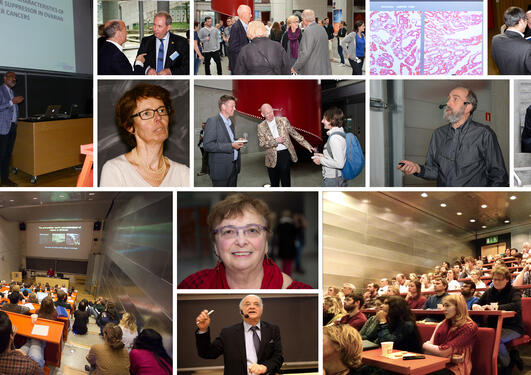CCBIO seminar: Daniela Elena Costea
My sabbatical year at the University of California, San Diego: Conditional expression of HPV16 E6/E7 onco-proteins and PIK3CA is sufficient to initiate HPV-associated carcinogenesis
Main content
Daniela Elena Costea
The Gade Laboratory for Pathology, Department of Clinical Medicine, University of Bergen
The rising incidence of human papillomavirus (HPV)-associated squamous cell carcinoma (SCC) highlights the urgent need to investigate the oncogenic processes underlying SCC initiation and progression. Genomic landscape identified PIK3CA signaling as a frequently altered growth promoting pathway in SCC. However, its relative contribution to squamous cell carcinogenesis with respect to the large number of additional genomic alterations in SCC has not yet been examined. We engineered a genetically-defined mouse model combining the conditional expression of PIK3CAH1047R with the tetracycline-inducible expression of HPV16 E6/E7 oncogenes in a localized and temporally controlled fashion, to investigate whether PIK3CA mutation and HPV-16 expression are sufficient to induce SCC. Interestingly, we found that PIK3CA expression alone does not cause any alterations, and that doxycycline induction of HPV-16 E6/E7 in the stratified squamous epithelium causes rapid and sustained suprabasal cell proliferation and hyperplasia, but not SCC. Surprisingly, we found that in adult mice the combined expression of HPV-16 E6/E7 and PIK3CAH1047R caused rapid development of epithelial dysplasia and SCC. Furthermore, mice with epithelial dysplasia exhibited a marked increase of mTOR activation in the basal epithelial layers which was further dysregulated in cancer. The mouse model presented here provides a valuable biological tool for understanding and targeting HPV-related squamous cell carcinogenesis.
Chairperson: Lars A. Akslen, CCBIO


